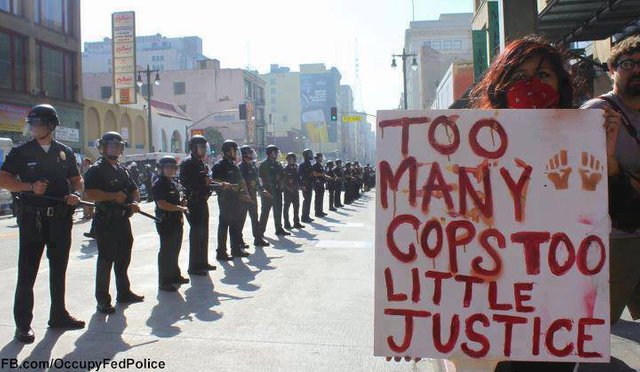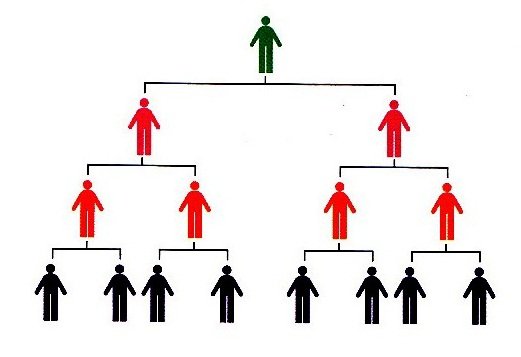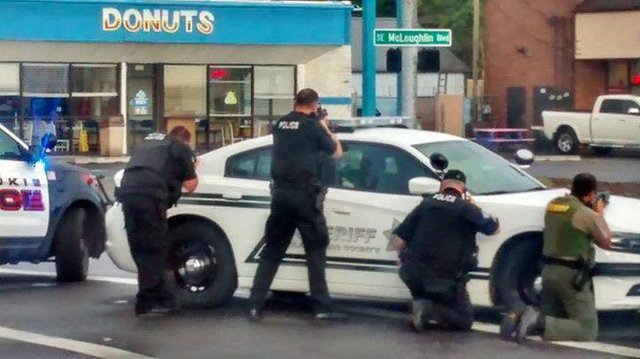Police Behavior: Understanding Does Not Mean Excusing
It’s probably one of the hottest topics right now in the USA, with opinions seeming to be repolarized with every new story that gains traction. We even saw it being used at the Republican National Convention as a banner to rally behind, passed between each speaker to incite the emotions and beliefs generated by actions against our law enforcement. I want to state here, at the risk of being simply labeled as an apologist for law enforcement, that I believe policing in this country does indeed demand a certain reassessment. Gross misconduct, abuse of power, and corruption are all features that I believe to be present in far too many departments and counties. Nevertheless, I’d like to briefly talk here about some of the criticisms I often see laid against law enforcement and why I believe they aren’t as one-dimensional as they are presented.

Why Aren’t the Police Policing Each Other?
This is one of the most common criticisms I see presented on forums whenever there’s a story regarding some kind of debauchery involving an officer. It’s a good question because most of us would like to imagine that if we knew someone was doing something morally or ethically wrong we would try to stop them. As is so often the case, however, our moral integrity doesn’t always translate into action. In terms of the police, the sense of camaraderie and unity ingrained during training and preserved through each department presents a double-edged sword. Just as that solidarity might help provide security and comfort during stressful situations, it also acts as a strong deterrent for officers to criticize or reprimand their fellow officers.
Not everyone will be Henry Fonda in 12 Angry Men. In fact, much of the psychology research regarding authority and group conformity suggests that many of us will be the eleven others. Beyond motivations to remain with the group, the power structure utilized by law enforcement must also be brought to the forefront. The chain of command by which law enforcement structures itself provides another obstacle. Corruption at higher ranks makes it difficult for subordinate officers to expose that misconduct present higher in the chain. For officers higher in the chain, misconduct at the lower rings might reflect poorly on their own command. The infusion of politics into the police structure only complicates the issue, as climbing the chain of command can often be influenced by the actions and desires of politicians. For the more corrupt counties, any perceptions of not supporting the right mayor or council can keep officers lower in the chain.
The final consideration for the topic question is self-preservation, which is related to the aforementioned issues. At the individual level, enacting morals and ethics can have a substantial cost. In breaking the thin blue line, an officer might feel the subtle or overt reprimand of a department. The workday for the individual incurs additional stress. For the individual officer, making it through the workday is often enough (something to which we can all relate). I don’t believe this component to be unique to law enforcement, as the workday in itself is often exhausting. Given the risks and possible repercussions of criticizing a fellow officer, I believe it to be very human for many officers to choose just making it through the day rather than taking a stand.

Aren’t Police Trained for Stressful Situations?
The other common criticism I see frequently raised against law enforcement involves the actions of law enforcement in stressful situations. From questions regarding why so many shots are fired to why officers don’t better control themselves, the issues regarding police conduct in what should be typical police situations are understandable. While not excusing what appears to be a lack of training, discipline, or focus on the surface, I think it is important to first recognize the core explanation for these issues: officers are human beings. It’s not a revelation, but it’s an element that seems to be forgotten amongst sarcastic remarks regarding extensive training and the standards we have for law enforcement.
The human element ensures that anxiety, stress, and adrenaline will all be factored into an officer’s response to a situation. While training does attempt to prepare officers, it is too grand an expectation to believe that it will match perfectly real-life scenarios. Officers are not robots; decision-making and discharge of a weapon can only be trained to a certain extent, one that will not be the same when faced with real people and real situations, both of which will be unique and wholly unpredictable. While the question may arise as to why one officer discharged his weapon an inordinate amount of times, it must be considered that high adrenaline can make six shots feel like one. Again, this doesn’t excuse every situation where an officer’s action is at best egregious, but it does raise a point that not every action on the surface is the product of some malice or sadism.

Closing Words
In reading this post, a bias in support of law enforcement might be detected. It would be dishonest to say that my own thoughts, beliefs, and experiences have been completely discarded in favor of complete objectivity. Despite this ostensible bias, however, I believe that these considerations are important not in excusing police behavior, but at the very least attempting to explain some of it. I hope you guys leave your comments and thoughts below. I know this is a contentious issue, but I believe it’s one worth discussing without polarization.
I don't think they spend as much time as needed on conflict resolution.. I have also read that they aim to hire folks with LOW IQs... http://abcnews.go.com/US/court-oks-barring-high-iqs-cops/story?id=95836
I disagree to an extent, they are there to protect and enforce our laws. They are not out there to play pretend therapist, phycologist, or social worker .... that would be quite the burden to put on a person who barely makes even a middle-class income in the US.
Here is a general consensus of the role a police officer should play as an officer:
You know what I think the problem is, it has nothing to do with conflict resolution training (not saying training is a bad thing), its the lack of parenting in this country to respect, obey, listen and do what the fuck is the right thing to do. I'm tired of people blaming others for the actions of a so called victim. 99% of you out there probably have no idea what it feels like to have your life truly in danger.
Now if you were to suggest we should explore better nonlethal options for officers, so that then after the fact a "real" professional such as a therapist, phycologist, conflict resolutionist (or whatever they would be called) could do their job, then I would be all aboard.
Congrats on getting your first post to trend on here! Do you intend to write more about social justice related issues? I've got a email list of 50k Berniecrats and I'm interested in getting them on this platform and thought you might be interested in writing content that would appeal to this audience.